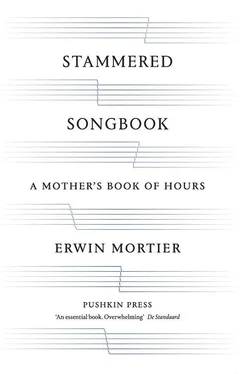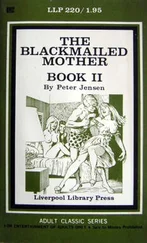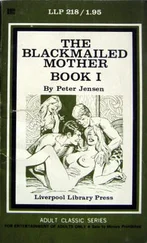When, for the umpteenth time in a row, I sit down on one of the chairs round the kitchen table and say: I don’t know what you want, Mum, but I’m going to rest a bit, she simply comes and tugs at my shoulders and gives me weak slaps because I won’t budge.
Meanwhile Mrs B. comes in, and stands by another table in the room, in shiny pyjamas and holding a good-sized wallet.
Well I never, she says. Old acquaintances!
My mother whines.
Do we know each other then? Where do you live?
In Grammene, replies Mrs B.
That’s possible. Relations of ours used to live there.
So you don’t know who I am?
No.
So what am I doing standing here?
I wouldn’t know.
Neither would I, says Mrs B.
A little later her therapist arrives. Mrs B. reads the paper aloud, the paper of her area. Pigeon-racing. Cycling news. Accident with minor damage and four injured.
What have you just read? Tell me, asks the therapist.
Who has read what? asks Mrs B. in astonishment.

The nurse brings her coffee. Smacking her lips, she looks at the cup that is put on the window sill. Give it to me, give it to me, her hands gesture. The corners of her mouth tremble, as if a last remnant of articulation still animates her lips.
She drinks greedily and polishes off the biscuit. When the cup is empty and the biscuit finished, she remains restless. She points to the silvery plastic the biscuit came in. All afternoon she makes it crackle in her fingertips and watches mesmerized, puts it in her mouth, sucks on it, crumples it in her fingers and sucks again.
She looks at me: don’t take it away from me.

Finally she falls asleep again and I leave her alone. In the doorway I turn round. I see her figure, hunched in sleep, hanging over the table, her arms pulled into her body, neck pulled into her shoulders, head bent forward, fingers curled on her ribcage. Her body is taking over from her, is lowering the blinds over her battered brain and is automatically filling her lungs. She rocks in her sleep. I think: so this is my mother.
I take the stairs down, behind the combination lock (“please key in the date backwards and push the gate”). The doors of most rooms are open, behind them grey hair, sucking on lower lips. Smell of ether, and the whole muzak of a hospital corridor on an endless grey afternoon. Games with bells ringing, telebingo, buzzing telephones, snatches of Brazilian soaps. This is where they rest then, the worker bees now shrunk to larvae of the welfare state, which is bursting at the seams under their weight…
Downstairs the nurse says my father is already out of recovery but that he’s in a different room. The man he was sharing the room with died this afternoon and is now being laid out.
It doesn’t surprise me. This morning, in the bed next to my father’s, I saw a trunk without legs, groaning in its sleep and with the death rattle already audible in its windpipe.
He’s dead, that guy, says my father.
Yes, I say.
Apart from that he is silent, still slightly woozy from the anaesthetic.
When my sisters visit towards evening, they haven’t got my message.
Have you come for the gentleman? asks the perplexed nurse. Didn’t they call you? The gentleman died…
What? Dead? Mr Mortier. My father? cries Veerle.
No, the other gentleman, replies the nurse, relieved.
I thought, that’s it, says Veerle later. We’ll have to cope all by ourselves.

She falls, for the umpteenth time. In my father’s room, where after the nurse has brought the evening meal, she panics. She gets up. I see her wobble. Shout something because I am standing too far away from her. My brothers are also too late. She goes straight forward on her face. The reflex of spreading her hands in front of her and breaking her fall with her arms has long since disappeared.
The thud of her head on the floor. The desperation. The frame of her glasses has dug into her eyebrow. She wails tears and blood.
To Accident and Emergency. The wound must be stitched. Again. I say: we can easily look for different frames for her. My brothers and sister take her away. One pushes the wheelchair, the others take her hands in theirs. Pietà. The sons carry the mother.

The sitting,
That sitting of hers,
next to me on the sofa.
That sitting without anything,
and that silence: an empty
house in the afternoon,
the tap leaks.

During the dinner for my father’s birthday, in that restaurant in the fields, she beckoned me from the wheelchair in which she almost always sits now. She beckoned me as she used to at family parties or other occasions where it was hectic: with her forefinger crooked and the hint of a wink.
I got up almost by reflex from my chair and went over to her, at the other end of the table. She smiled faintly and I smiled back. It can only have been about three steps, but as I walked towards her I saw the clarity disappear from her eyes and the mist rose again. Whatever it had been, it had gone.
It’s hard to adjust to life and, hardest of all, to death.

What I can’t cope with is her complete helplessness. The unbearable thought that if there were no one else there, she might survive for only a day or two. She would still have the reflex to drink when she’s thirsty, and for all we know, if they were within reach, she might be able to bring a spoon or a glass to her mouth. But actions like turning on a tap she has long since forgotten. She would not be able to dress or wash herself, or change her underwear; she would be helplessly lost.
Sometimes I observe her, I see her walking past the kitchen window, back and forth, woodenly, with her hands in front of her, to and fro, to and fro like a pendulum — the loneliness is almost audible, the eternal whistling of a kettle just below boiling point.
We live in and outside time. The seasons go on succeeding each other, but the usual time seems just a skin at present, surrounding dark, timeless flesh, of which she forms the bitter kernel. I wish time would revolve again. We have become crepuscular beings, searching and groping in twilight, unsure whether it will ever become day or night.

Sometimes she stops the pendulum movement for a moment. She looks at me as if I am something that has occurred to her.
And then goes on walking.

She is a girl with a bag of marbles that splits open, and she looks in terror as they career across the floor.
She has opened a cupboard and all the crockery tumbles out over her, there’s no end to it.
Читать дальше














